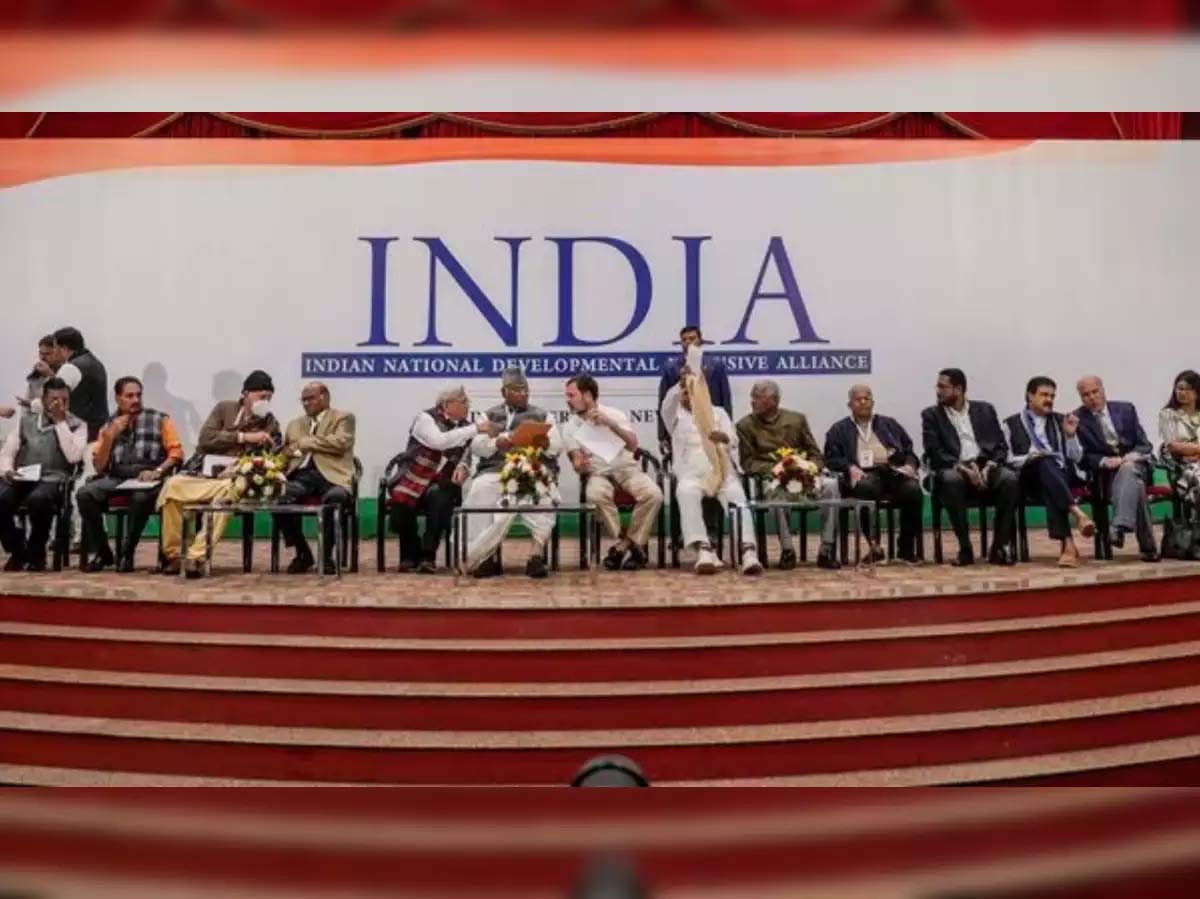In the imminent Lok Sabha elections, the INDIA coalition anticipates clinching a resounding victory and could swiftly determine its prime ministerial candidate in less than 48 hours, according to Jairam Ramesh, a senior figure in the Congress party. He posited that it follows logically that the faction securing the most seats within the coalition would emerge as the rightful contender for leadership.
During an interview with PTI on the final day of electioneering for the seven-phase Lok Sabha polls, the Congress luminary expressed strong belief in the Indian National Developmental Inclusive Alliance (INDIA), projecting that it would secure a significant surplus of seats beyond the 272-mark necessary for a parliamentary majority.
Ramesh also suggested that upon receiving the people’s mandate, some parties aligned with the NDA might gravitate towards the coalition, prompting the Congress leadership to deliberate on their inclusion.
In response to inquiries about the prospect of NDA allies like JD(U) chief Nitish Kumar and TDP president N Chandrababu Naidu joining post-elections, Ramesh remarked, “Nitish Kumar is adept at ‘palti (reversal)’. Naidu was previously allied with the Congress in 2019. I would venture to say that when the INDIA coalition secures the people’s mandate, not only INDIA-affiliated parties but also certain NDA affiliates may join the coalition.”
“The Congress leadership, including Kharge, Rahul, and Sonia, will need to determine their inclusion in the INDIA bloc,” he added. Ramesh underscored the distinction between INDIA and NDA, highlighting the importance of ‘insaniyat’ (humanity) and ‘imaandaari’ (honesty). He contended that NDA members embodying these values would align with the INDIA coalition.
Ramesh envisioned an INDIA coalition government, propelled by popular mandate, as being “authoritative” yet not “authoritarian”.
“I anticipate a magnanimous approach to victory—no retribution, no vendetta. Interestingly, Prime Minister Narendra Modi plans to visit the renowned Vivekananda Rock Memorial for a two-day retreat. The very same memorial from which Mr. Rahul Gandhi initiated the Bharat Jodo Yatra on September 7, 2022… I am certain he (Modi) will ponder on life post-retirement,” Ramesh remarked.
Regarding his assessment of the political landscape after six phases of polling, Ramesh refrained from citing specific numbers but asserted that the INDIA bloc would secure a clear and decisive majority. “273 constitutes a clear majority, but not a decisive one. When I say clear and decisive, I mean well beyond 272 seats,” he clarified.
He drew parallels with the 2004 outcome, wherein the Congress formed a coalition government despite the BJP’s ‘India shining’ campaign, suggesting a recurrence in 2024. Ramesh also predicted significant gains for the Congress in Rajasthan, Karnataka, Telangana, and Maharashtra.
“We anticipate strengthening our position in Chhattisgarh, Madhya Pradesh, and Assam. Overall, we are headed towards a scenario akin to 2004, ‘twenty years later’,” he remarked. Ramesh projected gains for the Congress in Uttar Pradesh as well, asserting that the BJP would not surpass its 2019 tally of 62 seats.
“They are unlikely to surpass 39 seats in Bihar; it’s implausible. Similarly, they won’t surpass 18 seats in West Bengal,” he opined. Asked about the purported June 1 meeting of INDIA bloc partners, Ramesh acknowledged the possibility without confirming the date, stating that INDIA bloc leaders would convene.
“In 2004, election results were announced on May 13, and the UPA was formed on May 16. Dr. Manmohan Singh’s candidacy for PM emerged on May 17. It took less than three days for Dr. Singh’s name to surface, although it was widely expected after Mrs. Gandhi declined the PM’s post, a significant sacrifice on her part,” he recalled.
“However, this time, I believe it will take even less than 48 hours (to decide on the PM pick). The leader of the ‘janbandhan’ (coalition) will be chosen within a few hours. It stands to reason that the party securing the most seats in the ‘janbandhan’ will naturally lead the coalition,” he emphasized.
Pressed further on the likelihood of the Congress leading the INDIA bloc in seat count, Ramesh remarked, “You may interpret my statement as you wish, but in a ‘janbandhan’, if all parties partake in governance… it stands to reason that the party with the highest number of seats will lead that ‘janbandhan’ in Parliament.”
Regarding the ease of reaching a consensus on the PM pick with stalwarts such as Mallikarjun Kharge, Sharad Pawar, and Mamata Banerjee involved, Ramesh cited the alliance’s slogan: ‘main nahin hum, mera nahi humara’ (not I, but we; not mine, but ours).
In response to critics questioning the stability of such a diverse coalition, Ramesh pointed to Manmohan Singh’s ten-year tenure heading the UPA coalition as evidence to the contrary. “We are committed to providing a stable, transparent, responsive, and responsible government,” he affirmed.
Ramesh asserted that a ‘janbandhan PM’ would rectify the economy. “The BJP’s policy demeaned farmers while lauding donors. That will change. Exploitative tax schemes like the angel tax will be abolished,” he declared.









